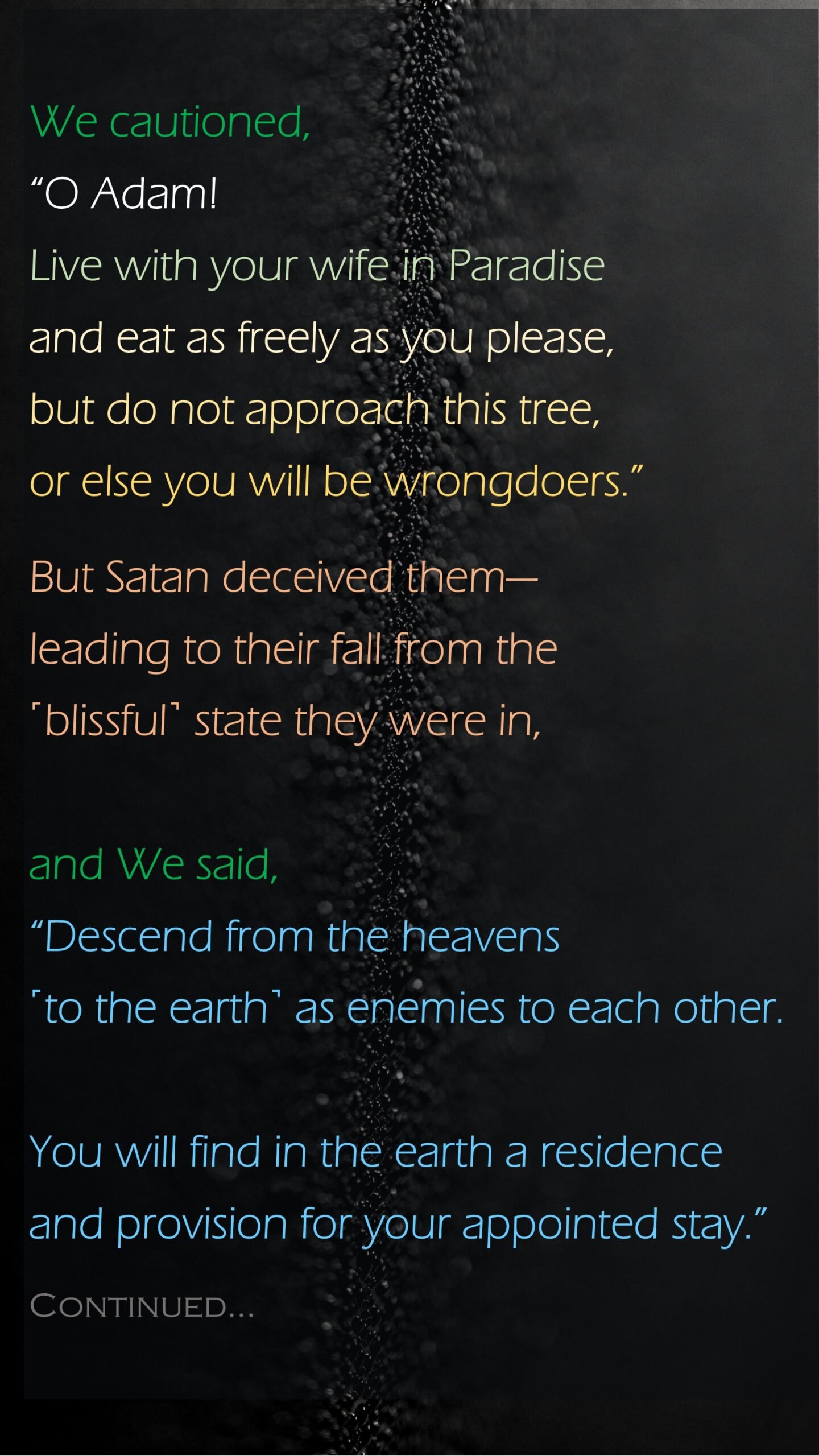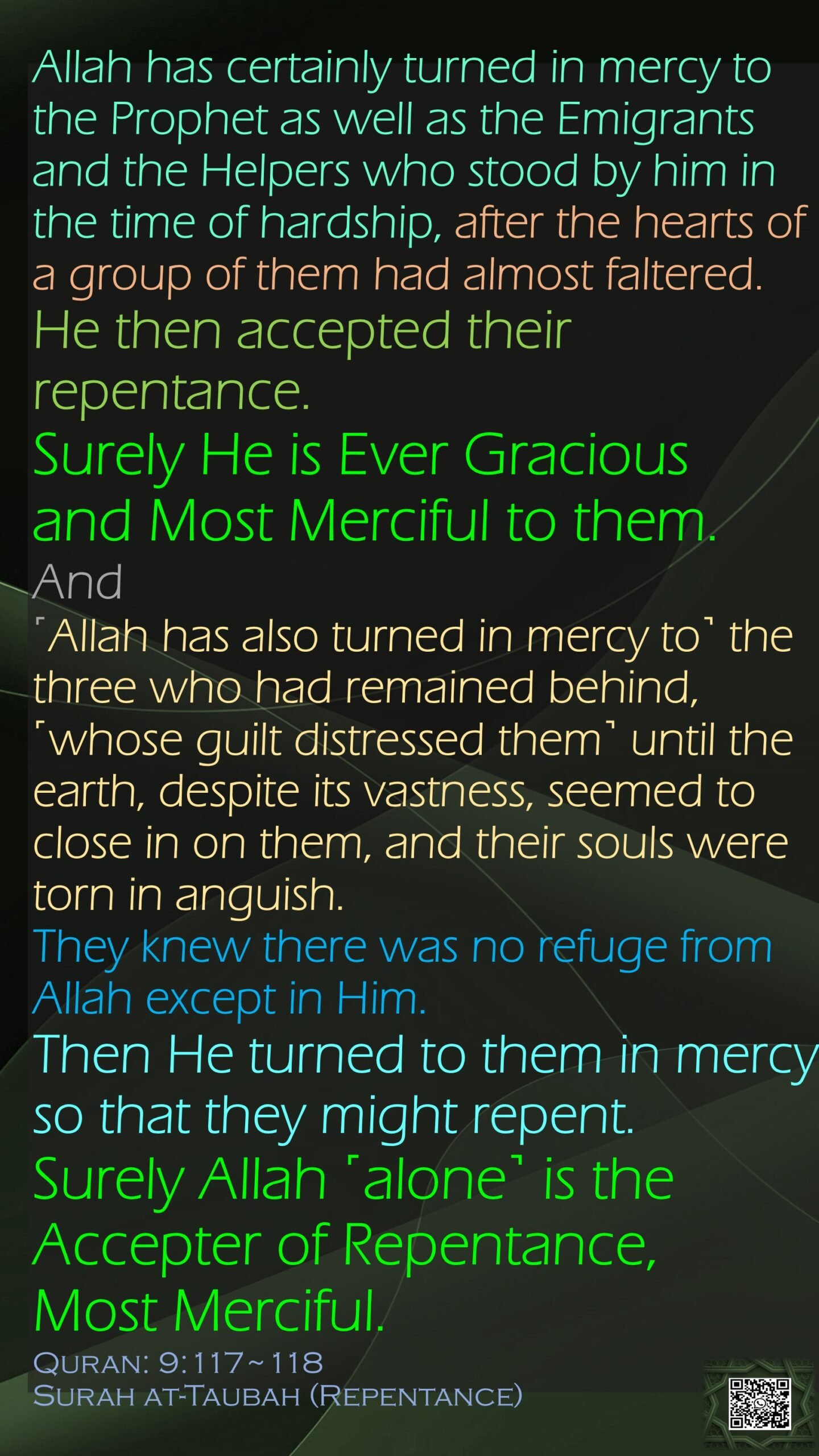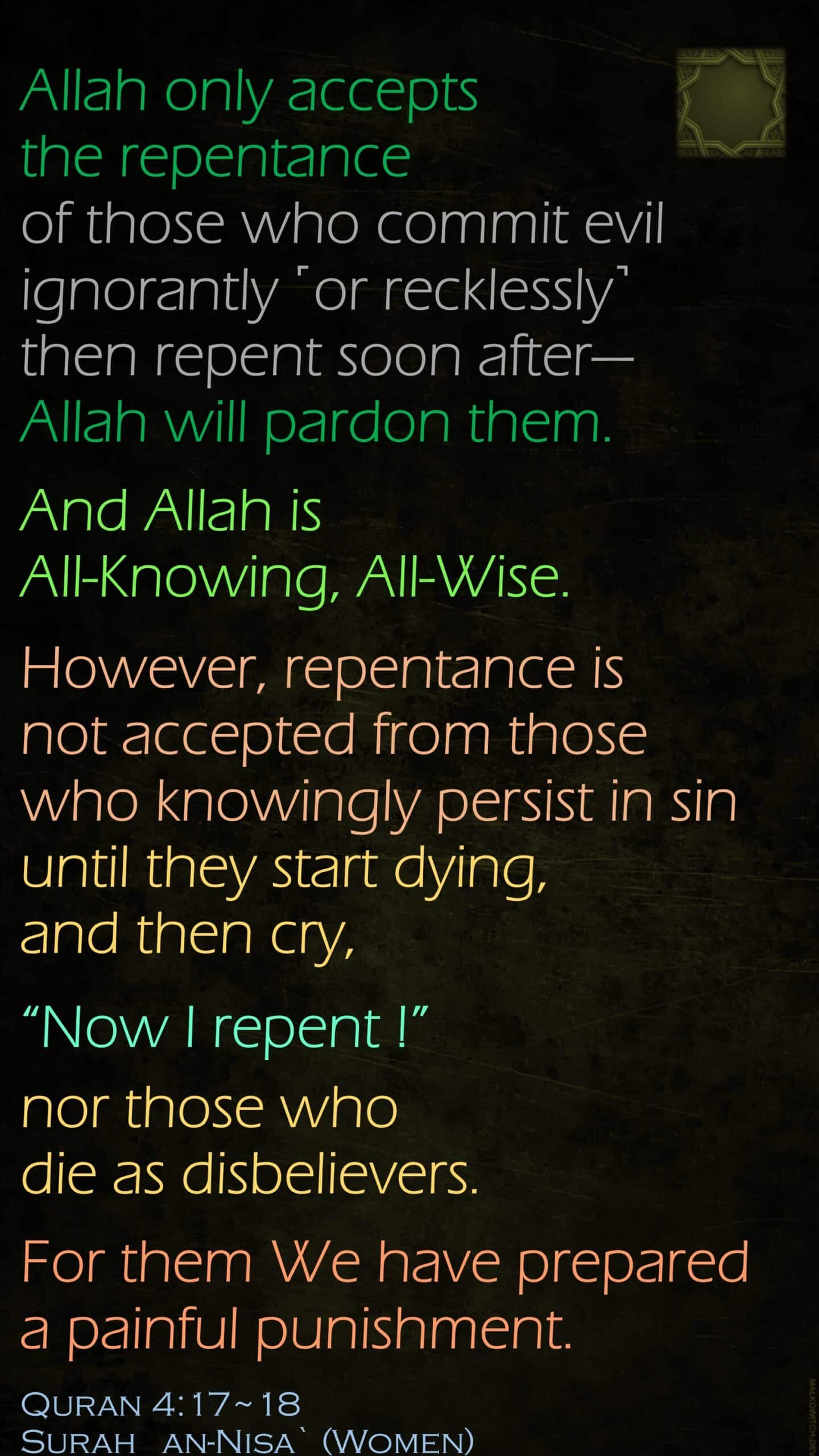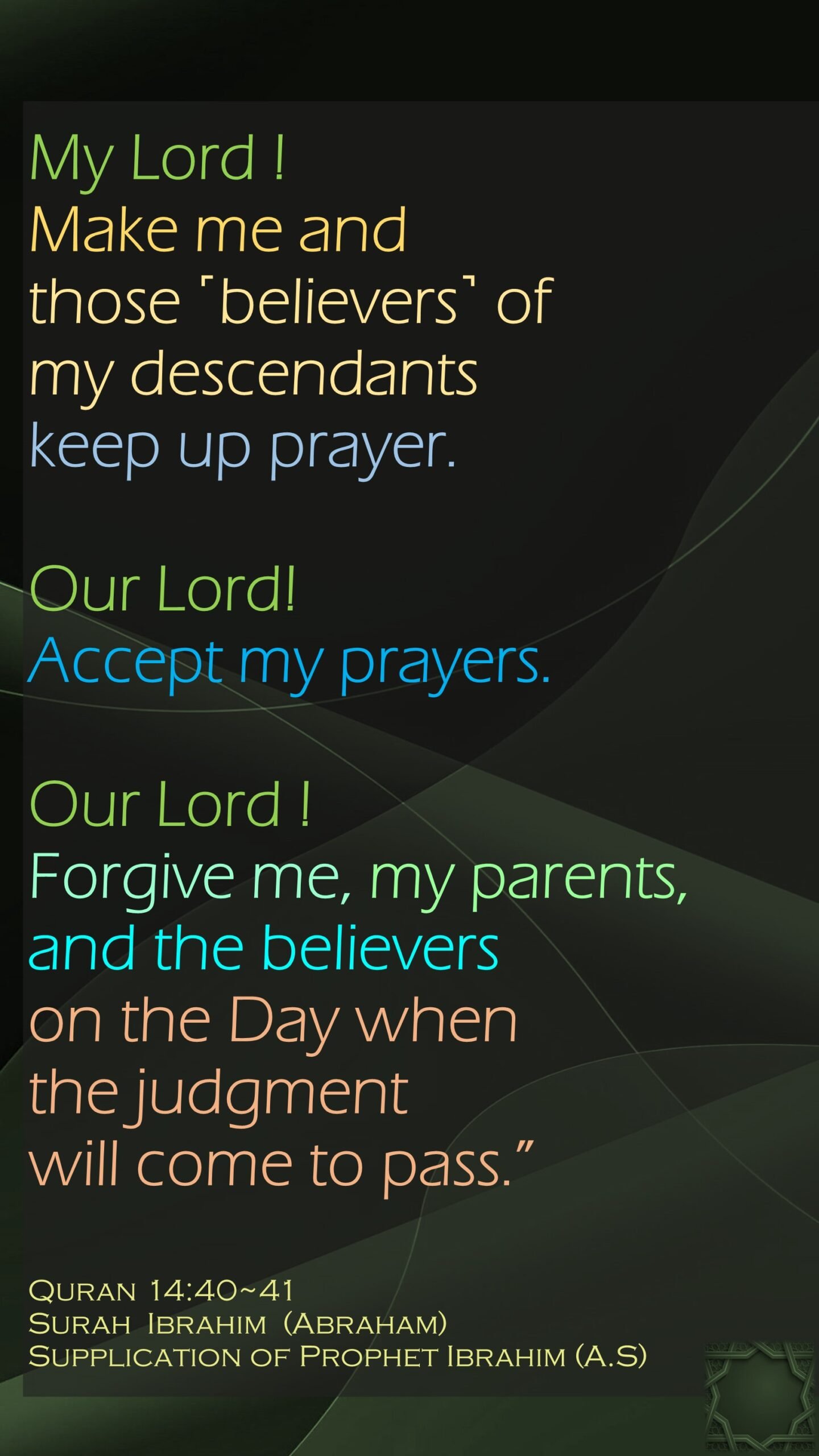28
Dec, 2025
27
Dec, 2025
Quran 2:35~39 (Ayah al-Baqarah)
Islam, Quran 002, 035, 036, 037, 038, 039, Aadam, accept, Adam, Allah, ayat, Baqara, believe, Cow, daily, descend, disbelieve, earth, enemy, Eve, fire, forever, Hawwa, Heaven, Heifer, hell, inspirations, islam, islamic, live, Muhammad, provision, quran, repent, resident, Satan, Sign, Surah, tree
10
Nov, 2025
Quran 2:159~160 (Ayah al-Baqarah)
Islam, Quran 002, 160, accept, Accepter of repentance, Allah, ayat, Baqarah, book, clear, condemn, daily, forgive, forgiveness, guidance, Heifer, hide, human, inspirations, islam, islamic, known, mend, Merciful, Most Merciful, Muhammad, proof, quran, repent, reveal, Surah, The Cow, truth, way
25
Jun, 2025
Quran 9:117~118 (Ayah at-Taubah)
Islam, Quran 009, 117, 118, accept, acceptemigrant, acceptor, Allah, anguish, close upon, daily, distress, Ever gracious, falter, guilt, hardship, heart, inspirations, islam, islamic, Mercy, Most Merciful, Muhammad, quran, refuge, Repenetence, Soul, Surah, taubah, vast
23
Mar, 2025
Hadees: Ibn-e-Majah 1366
Hadees, Islam 1366, accept, acceptance, answer, ask, Bless, Blessed, call, descend, every, forgive, forgiveness, get, grant, Ibn-e-Majah, last 10 nights, last third, layl-tul-Qadr, night, Night of Decree, night prayer, one third, oppurtunity, pray, prayer, Qadr, Ramazan, recieve, respond, seek, supplication, Tahajjud, voluntary
12
Nov, 2024










